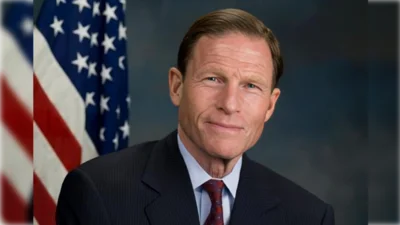Rep. Carolyn B. Maloney, Chairwoman of the Committee on Oversight and Reform, issued the following statement after the U.S. Court of Appeals for the D.C. Circuit upheld key parts of the Committee’s subpoena for financial information from President Trump and his businesses:
“Former President Donald Trump displayed an unprecedented disregard for federal ethics and financial transparency. Today’s decision affirmed Congress’s broad constitutional authority to conduct investigations, even when those investigations involve wrongdoing by the President. The court ruled that the Oversight Committee has valid legislative purposes to investigate former President Trump’s flagrant conflicts of interest, self-dealing, and constitutional violations.
“While it is disappointing that the court narrowed the subpoena in some respects, I am pleased the court upheld key parts of the Committee’s subpoena, affirmed our authority to obtain documents from Mazars, and rejected former President Trump’s spurious arguments that Congress cannot investigate his financial misconduct. We are considering next steps in this litigation, and my Committee is determined to fulfill our responsibilities under the Constitution to provide robust oversight and prevent corruption and self-dealing at the highest level of our government.”
Background:
At the beginning of the 116th Congress, the Oversight Committee launched several investigations of former President Trump’s conflicts of interest, inadequate financial disclosures, and violations of the Emoluments Clauses in order to determine the adequacy of existing laws and perform related agency oversight.
On February 27, 2019, President Trump’s personal attorney, Michael Cohen, testified before the Oversight Committee. He alleged that President Trump’s financial statements falsely represented the President’s assets and liabilities and that President Trump “inflated his total assets when it served his purposes” or, at other times, “deflated his assets to reduce his real estate taxes.”
As corroboration, Mr. Cohen produced portions of financial statements from 2011, 2012, and 2013—some of which were prepared by Mazars—which raised questions about President Trump’s representations on these forms and other financial disclosure documents, particularly relating to the President’s debts. Mr. Cohen also produced checks from President Trump and his business trust, some of which were signed after Mr. Trump became President, and Mr. Cohen testified that these payments were reimbursements of illegal hush-money payments made during the 2016 campaign.
On March 20, 2019, Chairman Elijah Cummings sent a letter to Mazars seeking key financial documents relating to these and other allegations, and on April 15, 2019, the Oversight Committee issued a subpoena to Mazars seeking four targeted categories of documents.
On May 20, 2019, after President Trump and his businesses filed a lawsuit seeking to prevent Mazars from complying with the Committee’s lawful subpoena, the D.C. District Court issued a ruling vindicating the authority of the Oversight Committee to investigate issues concerning the President and his companies. This ruling was upheld by the D.C. Circuit Court of Appeals, and the full D.C. Circuit rejected Trump’s petition for en banc review.
On July 9, 2020, Chairwoman Maloney issued a statement after the Supreme Court issued its decision in Trump v. Mazars USA, LLP. The Supreme Court’s opinion reaffirmed the bedrock principle in our democracy that no one—not even the President—is above the law and announced a new standard for evaluating congressional subpoenas for the President’s personal information. The Supreme Court remanded the case to the lower courts to apply the new standard.
On August 11, 2021, Chairwoman Maloney issued a statement after a district court ruling confirmed that the Oversight Committee had “facially valid legislative purposes” in seeking documents in this investigation and upheld in part the Committee’s subpoena for financial information from President Trump and his businesses.
Today, the Court of Appeals for the D.C. Circuit ruled that the Committee is authorized to obtain certain financial records and communications from former President Trump and his business entities covered by the Committee’s subpoena. The Court held that former “President Trump’s financial information would advance the Committee’s consideration of ethics reform legislation across all three of its investigative tracks,” including presidential ethics and conflicts of interest, presidential financial disclosures, and presidential adherence to Constitutional safeguards against foreign interference and undue influence.
Original source can be found here.








